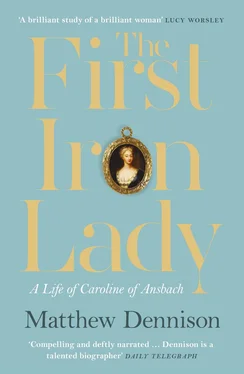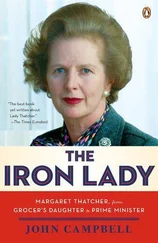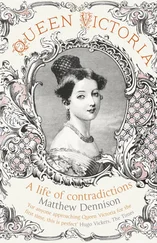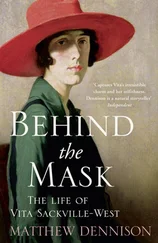Caroline’s satisfaction in the fulfilment of her own public role, as mother of a new generation of the electoral house, was less straightforward. With the self-containment habitual to her, she kept her own counsel. ‘I thank you from the bottom of my soul, that her Royal Highness, whom I value above all persons liveing, continues in so good health, and, as I am inform’d, in as good humor & temper as ever,’ John Toland wrote to Leibniz on 6 October. 123Her good humour was an aspect of Caroline’s infectious zest for life: she had learned long ago the value of counterfeiting even-temperedness.
Three further children completed the nursery in Hanover. Daughters Anne, Amelia – whom Caroline called ‘Amely’ – and Caroline were born at two-yearly intervals from 1709. Although Caroline would later tell one of her ladies of the bedchamber that ‘she thought the principal Duty of a Woman was to take care of her Children’, and at least one contemporary account claimed ‘she took infinite pleasure in amusing herself with the sportings and innocence of young children’, she was not consistently cosily maternal with her children when young. 124Even a sympathetic observer like her future woman of the bedchamber Charlotte Clayton protested at Caroline’s preference for ‘settling points of controversial divinity’ over vigilance in the matter of her children’s development; she was attentive to discipline, and the royal schoolroom included lessons in Latin, German, French, Italian and the work of ancient historians. 125
Caroline’s apparent failure to react either swiftly or effectively to the infant Frederick developing rickets suggests negligence, but should be read within the context of contemporary parenting habits and widespread medical ignorance, and balanced by George Augustus’s assurance to her, in a letter written two years later, of his instinctive love for their new baby Anne, a clear indication that she valued affection between parents and children. 126In the event, credit for Frederick’s recovery mostly belongs to Sophia, who, by directing that ‘Fritzchen’ spend time outdoors in the gardens at Herrenhausen, exposed him to the light and fresh air which effected a cure around the time of his third birthday. In her letters, Sophia intimated that her contribution extended to supervising Fritzchen’s wetnurse and feeding regimen: first smallpox then pneumonia had separated Caroline from her baby. 127A subsequent appraisal would absolve Caroline of the besetting flaw of royal and aristocratic parenting, that ‘Parents of rank … have so little regard to … the happiness of their children, as by leaving them in the hands of their servants, to suffer them to receive their earliest impressions from those, who are commonly taken from the dregs of their people.’ 128In Caroline’s case it was an assessment of variable accuracy, and Frederick benefited from the doting ministrations of his still energetic great-grandmother.
Caroline had miscalculated Frederick’s delivery date. Two years later, she made the same mistake with her second pregnancy. Ernest Augustus, Sophia’s youngest son, complained that the combination of Caroline’s muddle-headedness and George Augustus’s secrecy in relation to his ‘ petite famille ’ had left him again unsure whether Caroline was in fact pregnant. Perhaps she had lately miscarried or was on the brink of miscarriage? 129All doubts were resolved on 2 November 1709.
George Augustus was absent from the birth of his first daughter. Mindful of the restlessness of his nursemaiding two years earlier, Caroline had encouraged him to join the remainder of the court at the recently renovated electoral hunting box at Göhrde in the Celle forests. In his absence, he committed to paper effusions of love. ‘I am only a little bit angry that it [the birth] has caused you pain,’ he wrote with clumsy fondness. ‘You should know me well enough, my very dear Caroline, to believe that everything that concerns you attaches me the more deeply to you, and I assure you, dear heart, that I love the baby without having seen it. I pray you, take care of yourself, that I may have the pleasure of finding you well, and that still greater joy may be conferred upon a heart deeply desirous of it.’ 130Sophia’s letters from Göhrde, full of the coldness of the weather and the splendour of the palace’s remodelling, echoed a similar strain, proof of an improvement in the women’s relationship since 1705. ‘I am sure you do not doubt that my heart is completely yours,’ the older woman wrote, ‘and that I defy even your Prince to love you more than I will do all my life.’ 131To Bothmer she described the speediness of Caroline’s second labour. 132
With a view to the family’s future prospects, the baby was christened Anne. At George Augustus’s invitation, the queen agreed to stand as godmother to her infant namesake. Further missives from Hanover prompted a christening gift of Anne’s own portrait miniature set in diamonds. To Caroline she wrote, ‘I take keen pleasure in giving, as often as I am able, proofs of the perfect friendship I bear for your husband as well as the whole electoral family,’ and added, ‘I believe the diamonds are very good.’ 133Neither Sophia nor George Louis accepted either of these statements at face value, and indeed the gift had only been forthcoming after a number of tactful reminders. Loftily, Sophia dismissed Anne’s trinket as ‘the sort one gives to ambassadors’. Like her son, she was predictably irked by the queen’s request that Duchess Eléonore stand proxy for her at the baby’s baptism.
Anne’s stipulation may well have been a piece of calculated mischief-making. Certainly it was a reminder to her Hanoverian heirs that, for the moment at least, the balance of power tilted in her favour. The prize represented by the British throne was a considerable one. It had lately been augmented by the passing of the Act of Union, which prevented Scotland’s Parliament from nominating its own successor to Anne, thereby guaranteeing her heirs the double inheritance. Correctly Anne estimated Sophia’s greed for her crown, revealed in the elaborate courtesies she extended to British visitors to Hanover and her ‘many questions about [British] families, customs, laws, and the like’, noted by Toland as early as 1701. 134Diplomats kept the queen informed of efforts made by members of Sophia’s family to prepare themselves for coming apotheosis: lessons in English; the acquaintance of British politicians, men of letters and military men like Marlborough assiduously cultivated; Leibniz’s faulty attempts to master the intricacies of parliamentary opinion, including the divisions between those ‘vile enormous factions’, the Whigs, who supported the Hanoverian succession, and the Tories, who included those opposed to it, as well as the nature and extent of support for Jacobitism; the reception of a delegation from the University of Cambridge in 1706 and, following his appointment in the autumn of 1713, new English books dispatched from London by the Hanoverian resident George von Schütz. George Augustus had begun to learn English in 1701, soon after the Act of Settlement; Sophia extolled his speedy progress the following spring. 135Bilingualism would form a cornerstone of Frederick’s education. At necessary intervals Sophia also protested her fondness for her British niece: ‘I believe that it would be for the good of England that the Queen should live for a hundred years,’ she wrote cumbrously to the Duke of Marlborough. 136Out of earshot she grumbled at the failure of Anne’s government to grant her a pension or civil list payments, or to invest her with the title Princess of Wales. ‘I quite agree, “ Altesse Royale ” [Royal Highness] has become very vulgar now, much more common than “Your Electoral Serene Highness”,’ Liselotte consoled her. 137
Читать дальше












